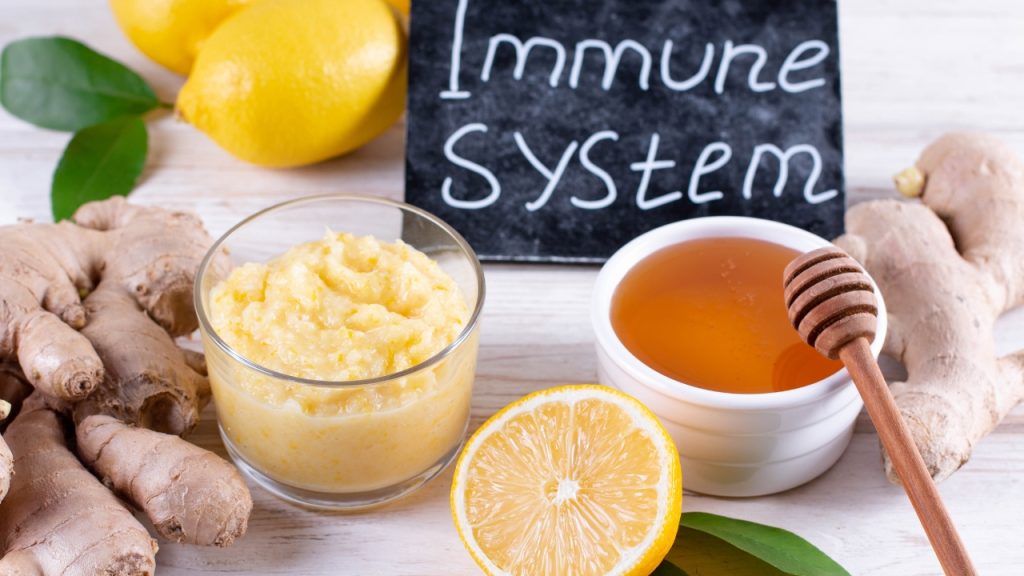A strong immune system is essential for defending your body against illnesses and infections. While modern medicine plays a significant role in treating health conditions, adopting natural strategies can provide long-lasting immunity support. In this article, we’ll explore effective, science-backed methods to naturally strengthen your immune system and maintain overall wellness.
1. Eat a Balanced, Nutrient-Rich Diet
Nutrition is the foundation of a healthy immune system. Consuming a variety of foods that are rich in essential vitamins and minerals supports the production and function of immune cells.
- Vitamin C: Found in citrus fruits, strawberries, bell peppers, and broccoli. It boosts white blood cell production.
- Vitamin D: Helps regulate immune responses. Get it from sunlight exposure, fortified foods, or supplements.
- Zinc: Crucial for immune cell development. Sources include meat, legumes, nuts, and seeds.
- Antioxidants: Found in colorful fruits and vegetables, antioxidants protect the body from harmful free radicals.
Tip: Aim for whole, unprocessed foods and limit sugar and processed food intake, which can suppress immune function.
2. Stay Hydrated
Water plays a vital role in supporting every system in your body, including the immune system. Proper hydration helps your body naturally eliminate toxins and ensures that your cells, including immune cells, function optimally.
Tip: Drink at least 8 glasses of water a day. Herbal teas and water-rich fruits like watermelon and cucumber can also help.
3. Exercise Regularly
Moderate, consistent physical activity can boost the immune system by promoting healthy circulation, reducing inflammation, and helping immune cells move freely throughout the body.
- Activities like walking, swimming, yoga, and cycling are effective.
- Avoid over-exercising, as intense physical stress can temporarily weaken immunity.
Tip: Aim for at least 150 minutes of moderate exercise per week.
4. Get Quality Sleep
Sleep is when your body repairs and regenerates. Lack of sleep can lead to higher levels of stress hormones and lower immune function.
- Adults should aim for 7–9 hours of quality sleep per night.
- Establish a regular sleep schedule and create a calming bedtime routine.
Tip: Avoid screens before bed and limit caffeine intake in the evening.
5. Manage Stress Effectively
Chronic stress can weaken your immune response by increasing cortisol levels, which suppress immune function over time.
- Practice stress-reducing techniques such as meditation, deep breathing, journaling, or spending time in nature.
- Social connections and talking with loved ones can also help reduce stress.
Tip: Take short mental breaks during the day to reset and breathe.
6. Use Natural Immune-Boosting Supplements (With Caution)
Certain natural supplements can enhance immune function:
- Elderberry: Known for its antiviral properties.
- Echinacea: Often used to prevent or shorten the duration of colds.
- Probiotics: Support gut health, which is closely linked to immunity.
Tip: Always consult with a healthcare professional before starting any new supplements, especially if you have pre-existing conditions.
7. Maintain a Healthy Weight
Obesity can negatively affect your immune system and increase the risk of infections. By maintaining a healthy weight through diet and exercise, you can reduce inflammation and improve immune responses.
Tip: Combine regular activity with portion control and mindful eating for sustainable weight management.
Final Thoughts
Strengthening your immune system naturally isn’t about a single quick fix—it’s a lifestyle. Eating nutrient-rich foods, staying active, managing stress, and getting enough rest can help your body stay strong and resilient. Start incorporating these habits today, and give your immune system the natural support it needs to keep you healthy.


